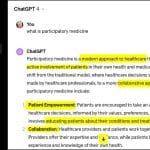Public health is different than our personal health. Most people take for granted the role public health agencies play in our lives, but its primary emphasis is tracking disease data across the country in order to prevent a nationwide epidemic or pandemic. Nobody wants another bubonic plague, right?
Public health agencies carry out their mission by standard health data surveillance methods, which usually includes aggregate data hospital reporting and similar methods. They’ve been doing this for decades, and it results in a single agency having a pulse, if you will, on the health of the nation. Such efforts protect us from something like the bird flu, if it ever spread within a human population in this country.
The problem is that this data, collected by the Centers for Disease Control and Prevention (CDC), often relies on “old school” collection procedures and is therefore often delayed by weeks before the data becomes something we can actually make decisions upon (“actionable”). What if there was a way for technology to help streamline this process?
Google to the rescue.
Earlier this week, Google’s non profit arm described a partnership between itself and the Centers for Disease Control and Prevention (CDC) to use Google search data to create an early-warning flu system called Flu Trends. The How Does This Work link provides a wonderful illustration of why this can be a powerful tool to help the health — the public health — of our nation. Using ordinary people’s search queries into flu symptoms and treatments, Google shows how it can predict a flu outbreak up to 2 weeks before the CDC’s own data shows the outbreak.
This kind of tool, which uses aggregated data so no personal information is ever a part of the analysis, is a prime example of the benefits of using technology to solve a simple data problem — getting data to provide us not just information, but more importantly, actionable knowledge. Such knowledge allows government officials to potentially make fast and more informed decisions about helping to prevent outbreak of the flu (for now), and perhaps in the future, future diseases or viruses.






Recent Comments